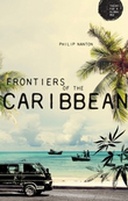Explore

This book argues that the frontier, usually associated with the era of colonial conquest, has great, continuing and under explored relevance to the Caribbean region. Identifying the frontier as a moral, ideational and physical boundary between what is imagined as civilisation and wilderness, the book seeks to extend frontier analysis by focusing on the Eastern Caribbean multi-island state of St Vincent and the Grenadines. The continuing relevance of the concept of frontier, and allied notions of civilisation and wilderness, are illuminated through an analysis of the ways in which SVG is perceived and experienced by both outsiders to the society and its insiders. Using literary sources, biographies and autobiography, the book shows how St Vincent is imagined and made sense of as a modern frontier; a society in the balance between an imposed civilised order and an untameable wild that always encroaches, whether in the form of social dislocation, the urban presence of the ‘Wilderness people’ or illegal marijuana farming in the northern St Vincent hills. The frontier as examined here has historically been and remains very much a global production. Simultaneously, it is argued that contemporary processes of globalisation shape the development of tourism and finance sectors, as well as patterns of migration, they connect to shifting conceptions of the civilised and the wild, and have implications for the role of the state and politics in frontier societies.
This book is included in DOAB.
Why read this book? Have your say.
You must be logged in to comment.
